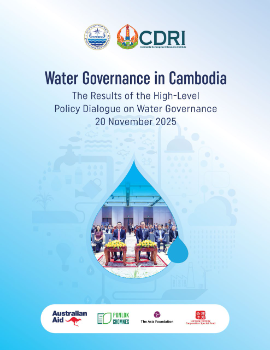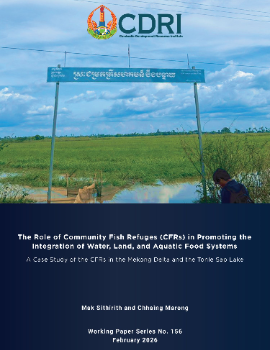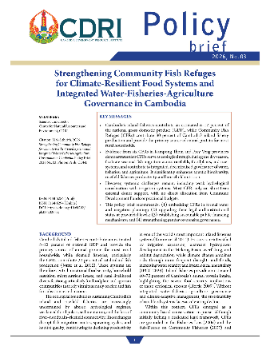
Abstract/Summary
The uneven burden of climate-related losses and damages and its implications for equity and social justice are receiving growing attention in science and policy. Smallholder farmers, indigenous groups, and ethnic minorities are often identifed as particularly vulnerable and likely to experience a greater burden of climate-related loss and damage. However, limited attention has been paid to experiences of climate-related loss and damage in contexts of agrarian change and related struggles, especially around land. In this paper, we analyse experiences of climate-related loss amongst smallholder farmers in Ratanakiri province, northeast Cambodia. We derive an analytical framework from political economy of vulnerability and sociology of loss to explain farmers’ sense of loss from climate change and foreground intangible dimensions of climate-related loss. We use a mixed-methods approach with a hierarchical regression analysis of a household survey (n=295), individual interviews, and focus group discussions across eleven villages. We fnd that a higher number of livelihood activities, greater values related to land, types of negative impacts experienced, and stronger perception of changes in extreme weather events are associated with a greater sense of loss. Meanwhile, a higher ability to repay loans and secure land tenure is associated with a lower sense of loss. Our results demonstrate how experiential, relational, and normative dimensions of climate-related loss are co-produced through processes of agrarian change such as fnancialization and histories of land struggles (i.e. through debt failure and fear of loss of access to land). This study contributes a deeper understanding of people’s lived experiences of loss arising from climate change impacts in agrarian contexts and their implications for climate justice.
Link to the article: https://link.springer.com/article/10.1007/s10113-024-02314-4



